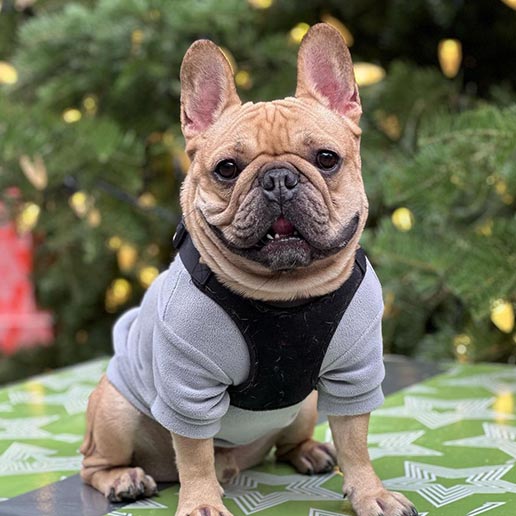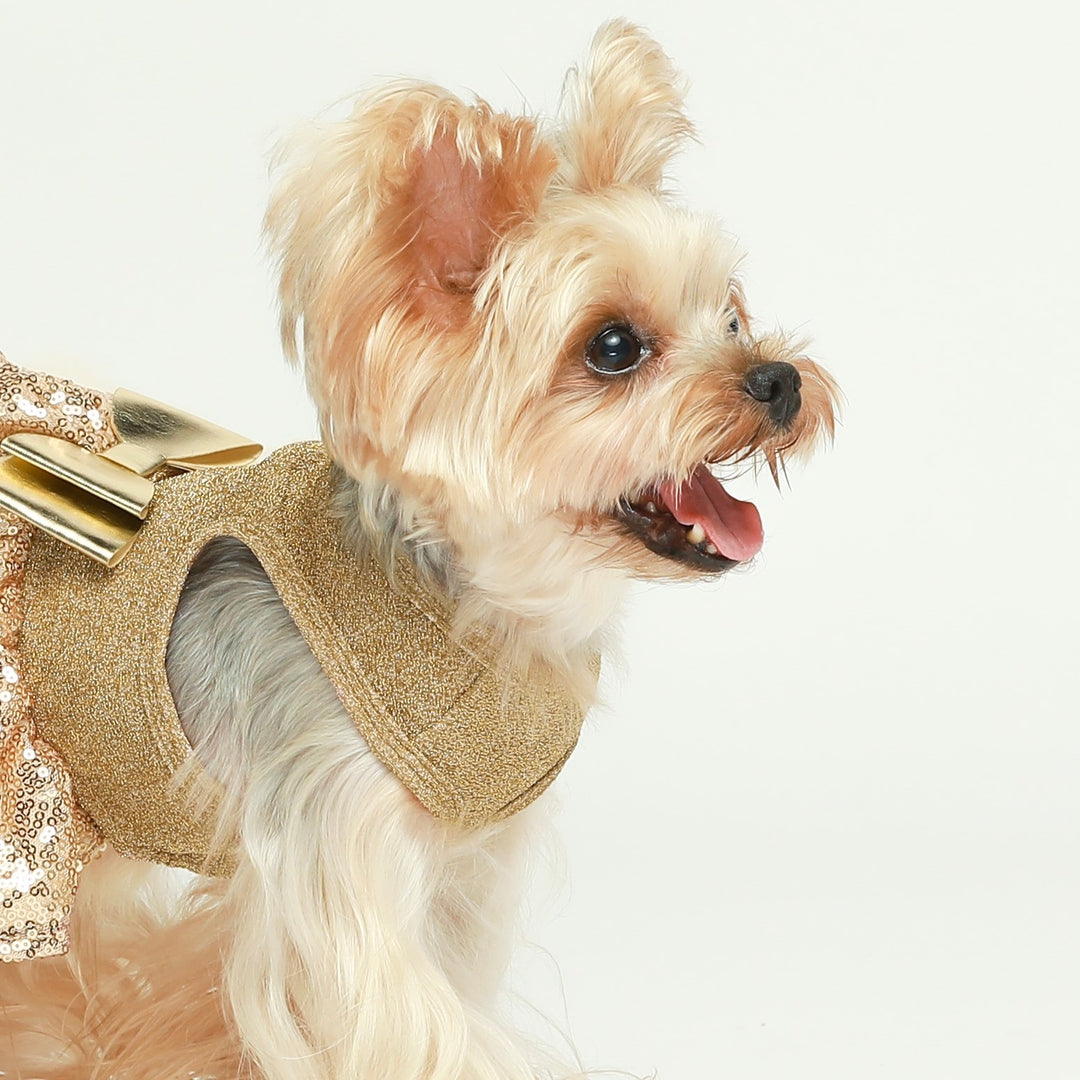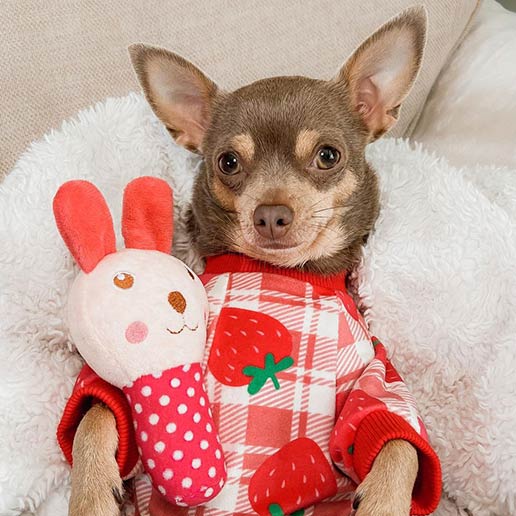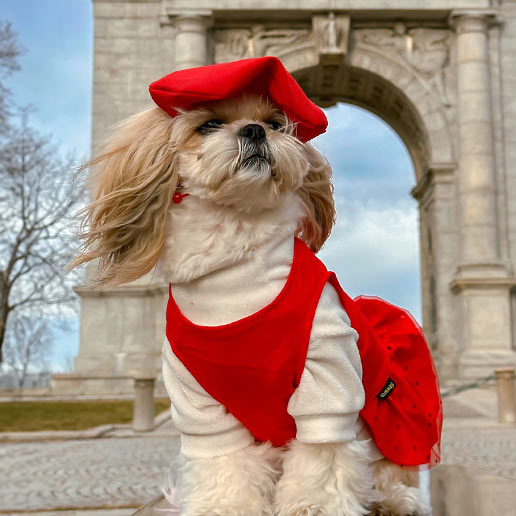How to Know If Your Dog Likes Doggy Daycare
Sending your furry friend to doggy daycare can be a great way to ensure they get socialization, exercise, and care while you're occupied or at work. However, every pooch has their own personality and preferences. In this article, we'll explore the main signs that indicate your four-legged companion is happy, comfortable, and having an absolute blast while at daycare. By paying close attention to what your canine buddy is communicating through their body language and demeanor, you can gain insight into whether they look forward to their fun-filled days of play and companionship.
1. Positive Body Language of Your Dog
Observing your dog's body language at daycare can reveal a lot about their mood. A happy, relaxed dog will likely have a loose, comfortable posture. Tail wagging in a friendly manner, rather than tucked between the legs, is also a good sign. You may notice “play bows” where your dog lowers their front half and sticks their rear in the air, signaling they are ready for fun.
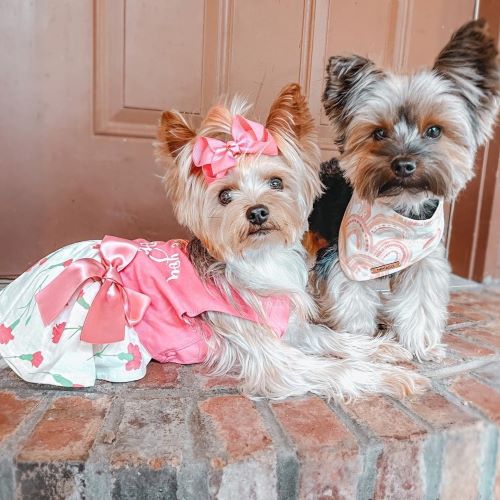
Instagram: bash_and_oakleigh
Additionally, look for a soft facial expression with a slightly open mouth and relaxed eyes, rather than a tense stare. If your dog seems excited to enter the daycare facility, pulling eagerly on their leash or bouncing in an enthusiastic way, these are clear clues they feel positively about the place. Their body language indicates contentment, comfort, and readiness to enjoy their day. By tuning into how your dog physically expresses themselves, you can better understand their emotions about daycare.Wondering about other common dog behaviors and what they mean? Discover reasons why your dog may experience trembling or shaking, and learn how to address it.
2. How Dogs Socialize at Daycare
Observing how your dog interacts with others at daycare can provide insight into their enjoyment. A happy camper will likely play eagerly with furry friends, initiating games like chasing or gentle wrestling. If another pooch invites them to play, a dog feeling comfortable will happily join in.
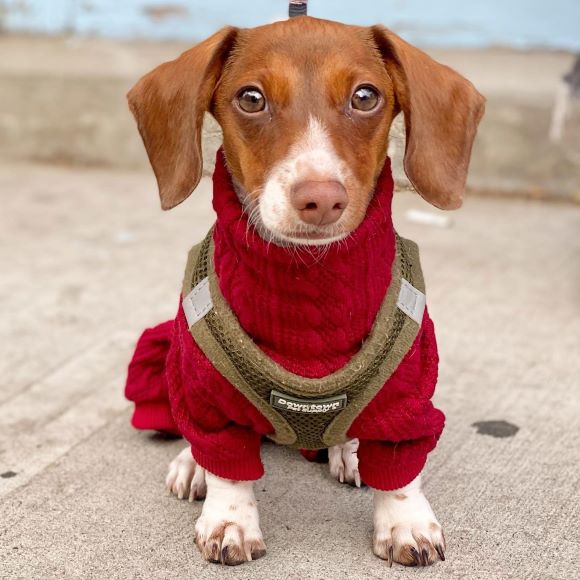
Instagram: dachshundsofnyc
You want to see relaxed, friendly behavior - not fearful or aggressive reactions. A dog delighted with daycare will get along well with the staff too, approaching for pets and treats. Playing considerately by sharing toys and taking turns also indicates they feel secure and enjoy the company of other dogs. Tail wagging and seeking out playtime are good signs they’re having fun!
3. Energy Levels of Your Dog
Checking in on your dog’s energy level is another helpful gauge. At daycare, they should seem energized, not lethargic or stressed. An excited pup will participate actively at playtime, scampering around and playing with toys. During breaks they should be able to settle in and nap peacefully, meaning they feel relaxed in the environment.
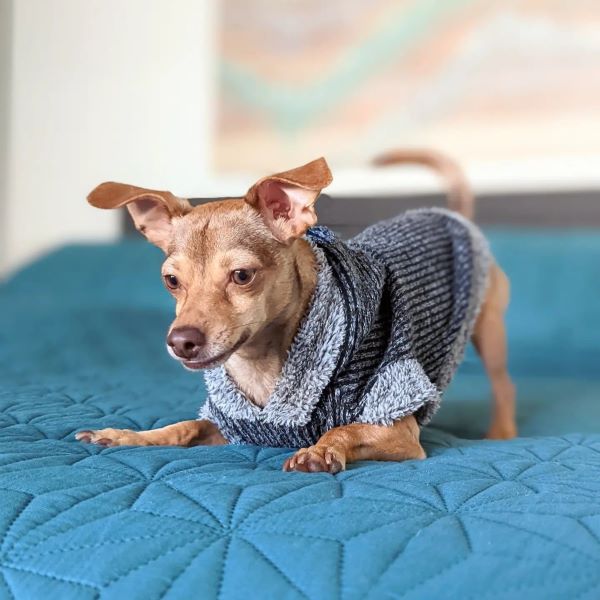
Instagram: my.man.mochi
Pickup time shouldn’t reveal complete exhaustion - just pleasantly tired from an active day. If their energy remains consistently good, bouncing back after rest, that points to genuine enjoyment of their time at daycare. An energetic pup eagerly returning day after day shows the socialization and activity agrees with them!
4. Appetite and Eating Habits of Your Dog
Maintaining a Healthy Appetite
A happy dog will usually have a good appetite at doggy daycare. They should be excited to eat the meals and treats given to them by the daycare staff. If the daycare provides food, your dog should be comfortable eating it without feeling too nervous or stressed.
Absence of Digestive Issues
Digestive health can reveal a lot about your dog's comfort at daycare. Anxiety and stress can sometimes upset a pup's tummy or potty habits. But a happy camper should have normal bathroom routines and no accidents while at daycare. This shows they are at ease.
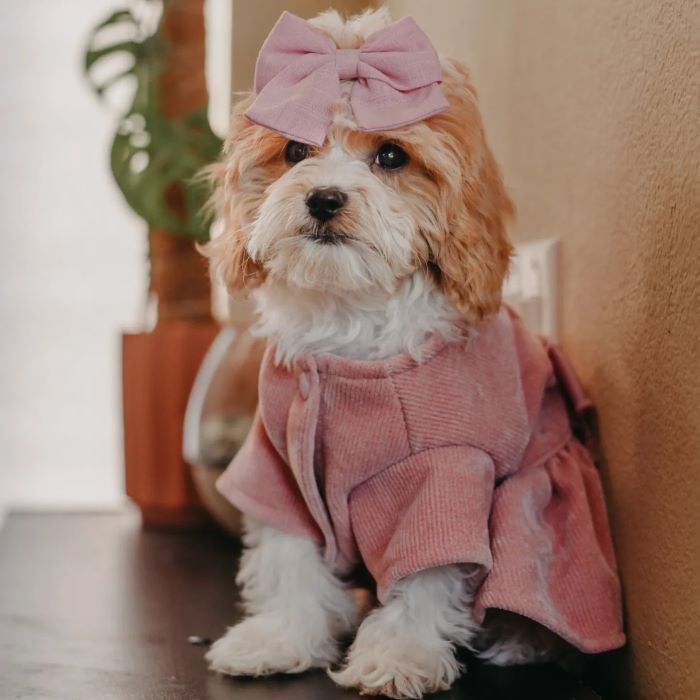
Instagram: Kallie.the.cavapoo
Staying Hydrated
Staying well hydrated is also important. The staff should provide fresh, clean drinking water at all times. A content dog will drink regularly throughout an active day of play.
Consistent Eating Habits at Home
Pay close attention as well to your dog's appetite and eating patterns at home after daycare. Their enthusiasm for meals should remain steady. Any changes in digestion or food drive could signal the new routine doesn't quite agree with them. Consistent eating habits reinforce that your pooch feels right at home during their fun-filled days of playtime with new friends.Consistent eating habits reinforce that your pooch feels right at home during their fun-filled days of playtime with new friends. However, if you notice a lack of appetite or digestion issues, techniques like hand feeding and warming food can help stimulate their interest in meals.
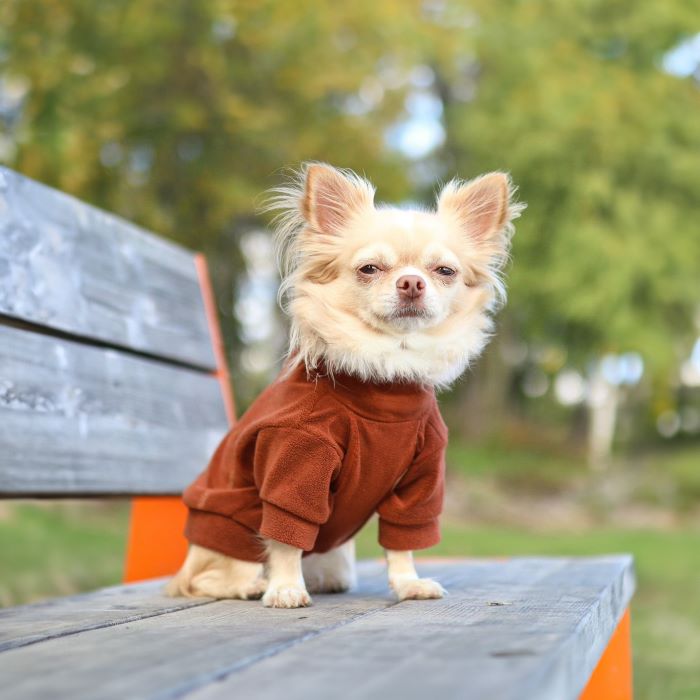
Instagram: lill_pippin
5. Behavior of Your Dog at Home
Positive Mood and Demeanor
When your dog comes home from doggy daycare, pay attention to their mood and behavior. A dog who has a good time will usually be in a happy, positive mood. They might be a little tired from all the fun, but they should still have a spring in their step and a wagging tail.
Maintaining Good Sleep Patterns
After a day at daycare, your dog should be able to settle down and sleep well at night. They should have a regular sleep schedule and not seem restless or anxious. If your dog is sleeping soundly and waking up refreshed, it's a sign that daycare is helping them get the right balance of activity and rest.
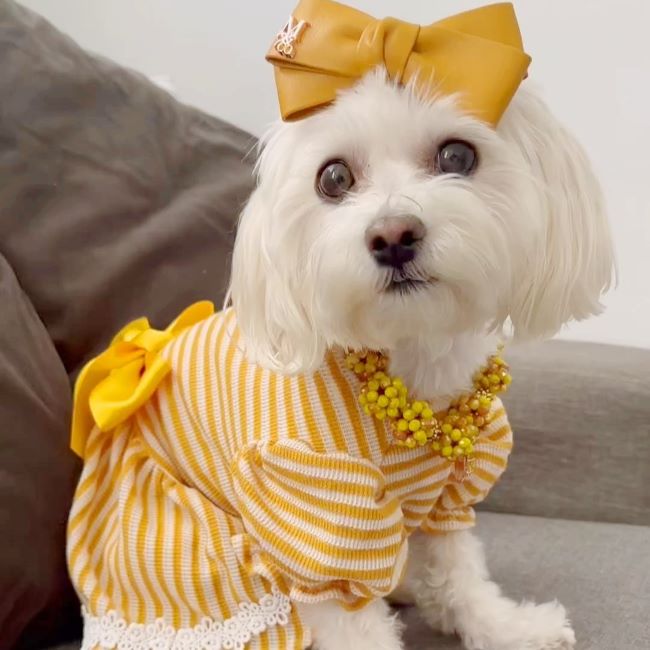
Instagram: minniepennyb
Absence of Anxiety or Stress
If your dog is enjoying doggy daycare, they shouldn't show signs of anxiety or stress when they're at home. They should be relaxed and content, not pacing, whining, or hiding. If you notice any new anxious behaviors after starting daycare, it could mean that something about the experience is bothering them.
Excitement for Daycare Visits
A dog who loves doggy daycare will get excited when it's time to go. They might run to the door, wag their tail, or even bring you their leash. This shows that they associate daycare with positive experiences and can't wait to go back.
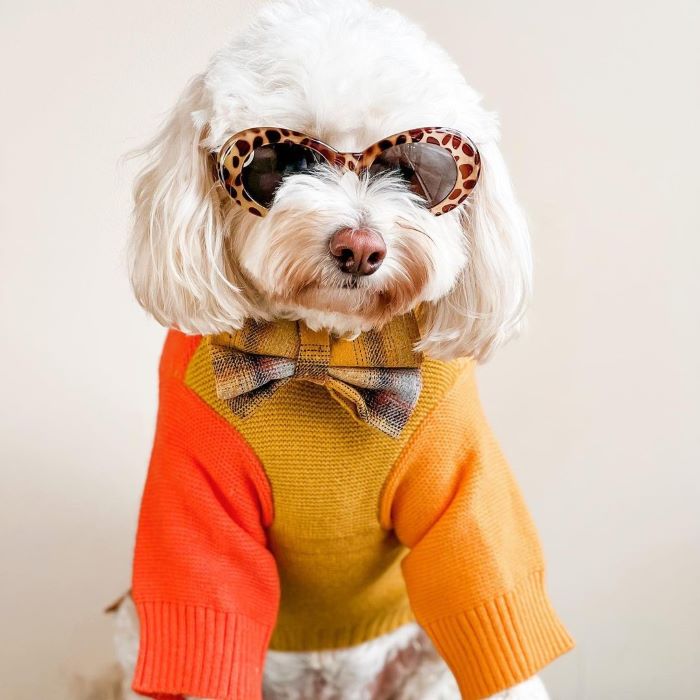
Instagram: deo_piper_cavoodles
Cavoodle in a Stylish Color Block Dog Sweater
Improved Socialization Skills
Regular visits to doggy daycare can help your dog become more social and confident around other dogs and people. At home, you might notice that your dog is more friendly and outgoing. They might be better at meeting new people or dogs without getting nervous or aggressive. This is a great sign that daycare is helping them learn important social skills.
Final Thoughts
The bottom line is assessing whether your pooch enjoys doggy daycare requires tuning in to their unique behaviors and signals. Signs like perky body language, eager socializing, strong energy, and happiness at home all suggest your furball is thriving. But keep watch as they adjust - every dog has their own needs. If you notice stress signals, try a daycare break or new location.
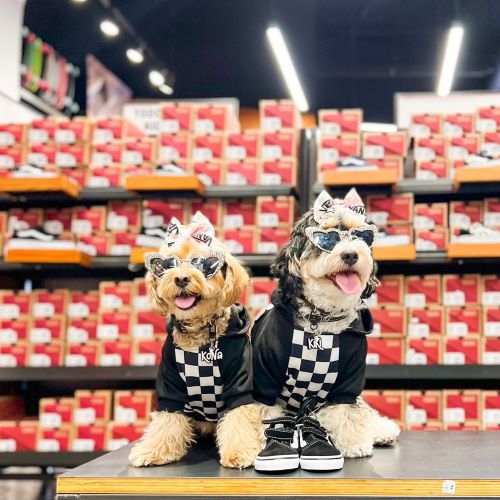
Instagram: maltipoo.kona
Doggy daycare can be tremendously enriching when it’s a good fit. For the right pup, it provides social stimulation, energetic play, and fun each day you’re apart. Pay attention to your dog’s cues and reactions to ensure their needs are met. When you see that blissful grin at pickup time, you’ll know your fluffy friend has enjoyed another fulfilling day of frolicking and friends. With attentive care tailored to your dog’s personality, daycare can absolutely be a wonderful experience!








